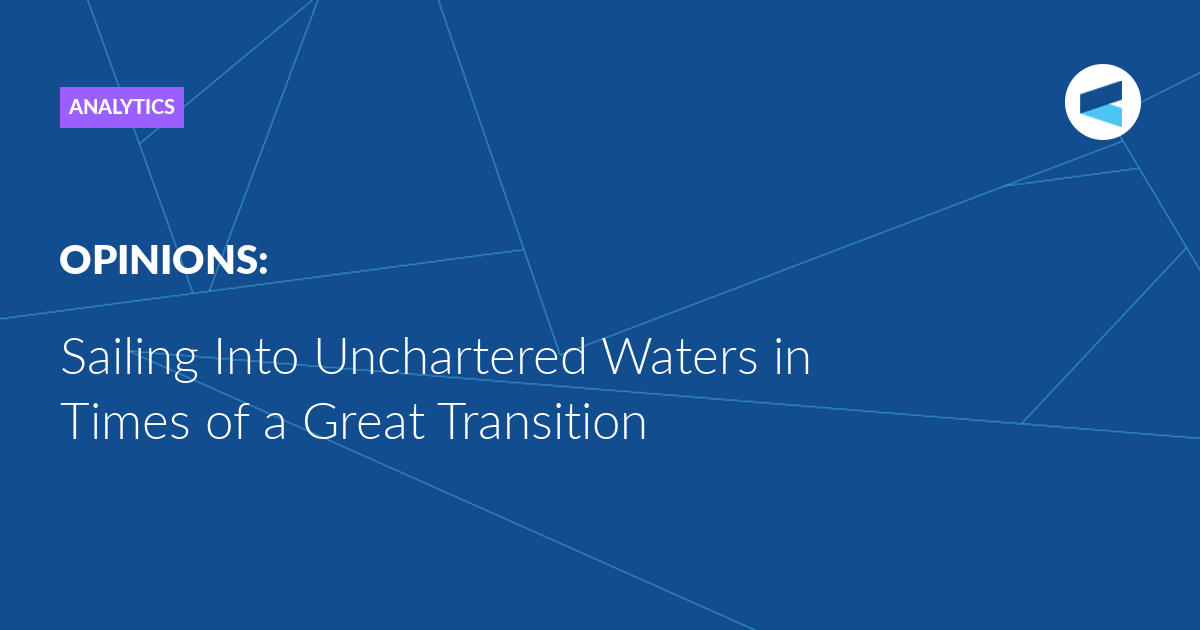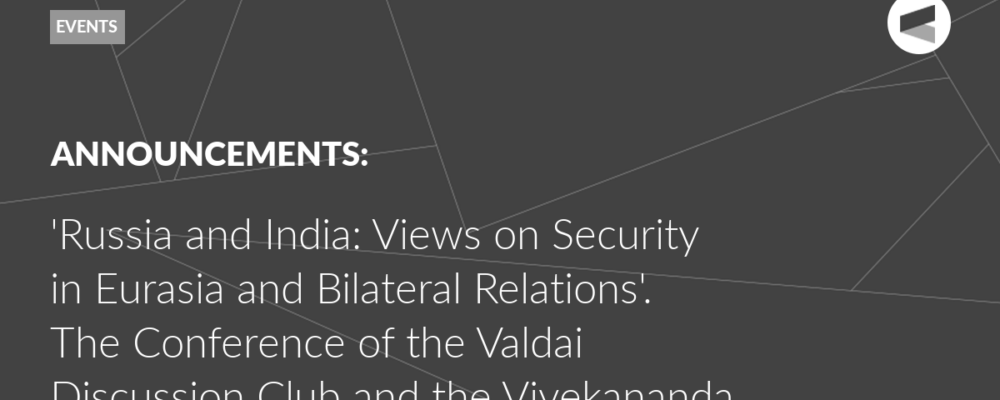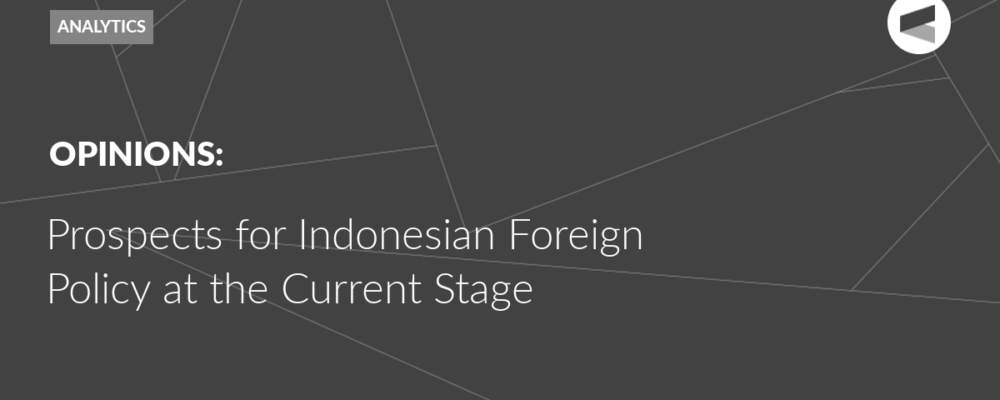This year marks the start of a new period of changes in modern history. We are certainly sailing into unchartered waters in times of a great transition, whereby extra caution must be taken by all nations, big and small, to guide our way forward. Nelson Wong writes on the causes of geopolitical shifts and on Putin’s six principles.
The unfolding of events in recent years confirms that we are entering times of a great transition towards a new world of multilateralism. Recognising the trend of world development and moving in tandem with it are like “riding on the wave of a winning momentum”. For those who believe in Chinese philosophy as such, every country would and should try and adjust its policies to respond to the changing environment in order to survive and thrive; although the ways and approaches each country takes may vary, depending on factors including its own economic reality, its perception regarding security matters, its cultural and historical background as well as the changing external environment, which may by and large shape a country’s behaviour from time to time.
Our world has once again arrived at a major crossroads, whereby the big and powerful will have to shoulder the responsibility and decide which direction we are heading towards, and how to create a new order to ensure peace and development for all nations that befit world leaders. Looking back into the development of world history, we have seen empires wax and wane; chaos and war have ensued when competing powers fight for supremacy but fail to reconcile with each other. Many have argued that it is difficult for changes to take place peacefully across the “Grand Chessboard”, often referred to as the change or shift of power centre(s) in a global context, because the up and coming are bound to be vigorously rejected by those who are still dominant but diminishing.
Behind the ongoing conflict in Ukraine, the inexorable war in Gaza, and the escalating tensions across the Taiwan Strait and the South China Sea, what is apparent is the refusal of the US-led West to accept the changing realities — that countries in the Global South are resisting the former’s attempt to prolong its dominance in world affairs and that the order that was built after the Second World War is virtually broken. Free trade is dead. The return of trade protectionism has been triggered mainly by the US trying to manipulate global supply chains to its own advantage. Strategists and policy advisors from around the world have been busy coming up with scenario analyses and situational studies to try and help protect the interest of their respective countries, but the fundamental question remains as to how we humans can learn to solve our disputes in a civilised way through peaceful negotiations and bid our “farewell to arms”.
Whether the war in Ukraine was provoked by the US or if Russia in fact fell into a trap set by the West may still remain debatable for many years to come. But what is true is that NATO has been successfully resurrected as a result of the war and that the US has once again tightened its control over Europe under the North Atlantic partnership, although cracks within the European Union are becoming more visible. Two years after it launched its special military operation in Ukraine and found itself severely sanctioned by the US-led West, Russia remains strong economically, and the country, occupying the largest landmass across the Eurasian continent, is embarking on a path of a national reawakening and is committed to remaining relevant in the building of a new world order.
In global politics, nothing happens at random. For almost two decades after the collapse of the Soviet Union, the repeated refusal and rejection by the West of Russia’s expressed willingness to be part of the “European or Western family” has led to Russia’s eventual rousing to re-identify itself as a Eurasian country and turn to the East to partner with Asian economies in order to gain more momentum in its own development. Russia’s subsequent decision to forge a tighter partnership with China is now widely recognised to be in the country’s best interest, especially in response to the wide-scale sanctions Russia has been facing since February 24, 2022 when it launched its special military operation in Ukraine.
Amidst the growing hostility of the West towards Russia, whereby some governments in Europe are pledging to send more financial aid and advanced weapons to Ukraine, others are openly against such a decision for fear of entering a direct conflict with Russia. With more people having now realised the root causes of the conflict and the fact that all countries across Europe have suffered collateral damage, leaving only the US as the winner, the future of the European Union and the independence of Europe has now been called into question. That said, ending the war in Ukraine still seems remotely possible, as countries in Europe have tied themselves up already to the American-driven war machine. The recent election results across Europe and the upcoming election in the US may change their policies to some extent, but Russophobia, or enmity towards Russians, is believed to remain and will be felt for quite some time to come.
Difficult as it may have been, Russia has successfully mobilised the whole country and transformed its economy to reflect its determination to win the war in Ukraine, declaring that its objective is to break the will of the West to ever dare challenge or harm Russia again. This shared resolve amongst the country’s elites has also been voiced by their leadership in the sense that Russia’s vow to pre-emptively use nuclear weapons if it faces an existential threat is its ultimatum to the West to stop pushing the envelope further. At a time when many of the career politicians in the West have been carried away by their arrogance and ignorance, the reminder of nuclear deterrence is hence considered timely, at least from the Russian perspective.
In parallel and almost within the same time period, the rise of China as an economic powerhouse to become the principal trading partner of over 140 countries has made the US feel constantly threatened. By defining China as its main competitor and adversary, the US has admitted that China is now the only country that has the ability and readiness to challenge the leadership of the US on a global scale. China’s tightening of its relations with Russia in recent years has made leaders in the West convinced that they must all side with the US to retain their collective dominance over world affairs. The contradiction, however, is that neither China nor Russia have expressed a willingness to replace the US. China has never declared the US a competitor, let alone enemy.
That said, when accused of having undermined the so-called “rules-based order” and posing a direct threat to the values of “liberal democracy”, China’s rebuttal and confidence in winning this competition, if taken by its true meaning, lies in the fact that the US has long betrayed itself by its hypocrisy in trying to maintain its primacy using means that have nothing to do with what it purports to stands for. Regardless of how desperate and reckless the US and some of its allies have been to demonise China and now its strategic partnership with Russia, China has stood firm in continuing to advocate for free and fair trade, to denounce the hegemony of the US, to respect the provisions of the UN Charter and International Law, and to support the building of a new multipolar world of peaceful coexistence among all nations, for which Russia has also vouched its support.
The “Joint Statement” by China and Russia, which was released during Russian President Vladimir Putin’s most recent visit to China, reflects the unshakable resolve of the two countries to take each other as a “priority partner”; its impact on geopolitics and on the world economy should hence not be underestimated. Unlike the previous declarations and statements published after a state visit of the Russian President to China or vice versa, this ten-thousand-word long document has spelled out in detail for the first time the two countries’ resolve to tighten their partnership, their shared vision on pressing issues of a worldwide concern as well as economically on a bilateral level, and their common stance on the broader subject of global governance over the long run.
The somewhat expected downplay in the Western media of the Russian President’s latest visit to China is noticeable, showing not only the West’s resentment but perhaps also their unpreparedness, if not shock, at the open declaration by Russia and China. Just within weeks and even days before President Putin’s arrival in Beijing, senior White House officials including US Treasury Secretary Janet Yellen and US Secretary of State Antony Blinken came to China one after the other, pressing Beijing to stop supporting Moscow and even threatening to impose more sanctions on China if Beijing does not heed Washington’s expectations.
With its demand and warning being blatantly ignored by China, the US has increased its arms sales to Taiwan in an attempt to further discourage China’s efforts to seek unification with the self-governing island. Meanwhile, more US warships and those of its allies are seen every now and then passing through the South China Sea to flex their muscles under the pretence of demanding “freedom of navigation”, while the Philippines has been emboldened (by the US) to amplify and intensify its disputes with China over the sovereignty of a few islands to further provoke Beijing. Most recently, the White House introduced a 100% tariff on electric vehicles imported from China, thus escalating the already ongoing trade war between the two countries to a higher level.
Not by coincidence in its timing, whilst the latest 2024 G7 summit in Italy was staged to show the unity of the West against Russia and China, the foreign ministers of the BRICS countries have met in Russia to promote global engagement for building a multilateral world and calling for the adoption of a new trade settlement mechanism in an effort to speed up the de-dollarisation process. Meantime, Beijing’s top diplomat Wang Yi has reiterated China’s uncompromising commitment to strengthening its relations with Russia but stressed that the Sino-Russo partnership “is not a modus vivendi or a political expedient of a temporary nature”, and should be valued for its non-exclusive nature that is based on non-alliance, non-confrontation and the non-targeting at any third party.
Some have criticised that the tightening of the partnership between China and Russia will only escalate the tensions of the US-led West against Russia and China, thus bringing back the Cold War. A few American strategists have argued that the US should have engaged Russia to jointly contain China, which they believe poses the biggest threat to (the dominance of) the US, while others, including some pundits in China, are advocating that it is not in China’s best interests to “side with Russia” for various reasons. Smaller countries, particularly those in Southeast Asia that find themselves caught in the middle of the growing conflict between the US and China, have voiced their reluctance to take sides.
While people’s opinions may differ at all times, the widening of differences between the US-led West and the Global South that China and Russia are leading are not only predictable but already a reality as well. What the US-led West cannot deny is that neither China nor Russia aim to destroy or replace the US nor the West in general. Rather, the expressed statement of the two to detest US hegemony is symbolic of the shared aspirations of the countries of the Global South. The enlargement of BRICS and SCO as well as the expressed interest to join by Turkey, despite it being a member of NATO, demonstrates the growing visibility of these organisations, the importance of which the West can no longer ignore.
The naked truth is that we are facing the outright refusal of the US-led West to accept the ongoing rebalancing of the world order and the need of the West to learn to coexist with the inevitable rise of other powers. The frustration over the uncertainty of our way forward is not due to the rise of China and other powers only, but the fact that the US has lost its moral high ground to be the leader of the world; this calls for the building of a new and more balanced order of world governance. When smaller countries might as well remain as free riders of whatever order there is and do not have the guts nor the incentive to offend any of the powers, it is really up to the big and powerful to lead and strike the balance.
In his address to the Valdai Club gathering in late 2023, President Putin pointed out the challenges the world is facing and outlined his country’s new 6-point approach that by and large coincide with the Global Development Initiative, Global Security Initiative, and Global Civilisation Initiative advocated by China. Despite the many challenges that are expected in a major transition period as such, it is advisable for China and Russia to not give up on their efforts to engage in active dialogue with the US and its allies — multifaceted and multidimensional strategic rethinking and topical debates are sorely needed by all stakeholders in order for the leaders of the US-led West to listen to the voice of the peace-loving people, to be convinced that it is high time for them to contain not the development of other countries but the greed of the privileged few, to refrain from their arrogance and respect the equal right of others, and above all, to be on the right side of history.
This year, 2024, marks the start of a new period of changes in modern history. With a growing number of European countries becoming nationalistic and protectionist, and with Russia’s continuing resolve to fight the West’s provocative attempts to challenge its existence as a Eurasian power, with China’s steady advancement to be increasingly relevant and important in global affairs, and with the pending outcome of the US presidential election, which is to take place at the end of the year, particularly in view of the latest assassination attempt on the Republican Party’s nominee Donald Trump and the announcement of his running mate J. D. Vance, we are certainly sailing into unchartered waters in times of a great transition, whereby extra caution must be taken by all nations, big and small, to guide our way forward.
The Valdai Discussion Club was established in 2004. It is named after Lake Valdai, which is located close to Veliky Novgorod, where the Club’s first meeting took place.
Please visit the firm link to site






